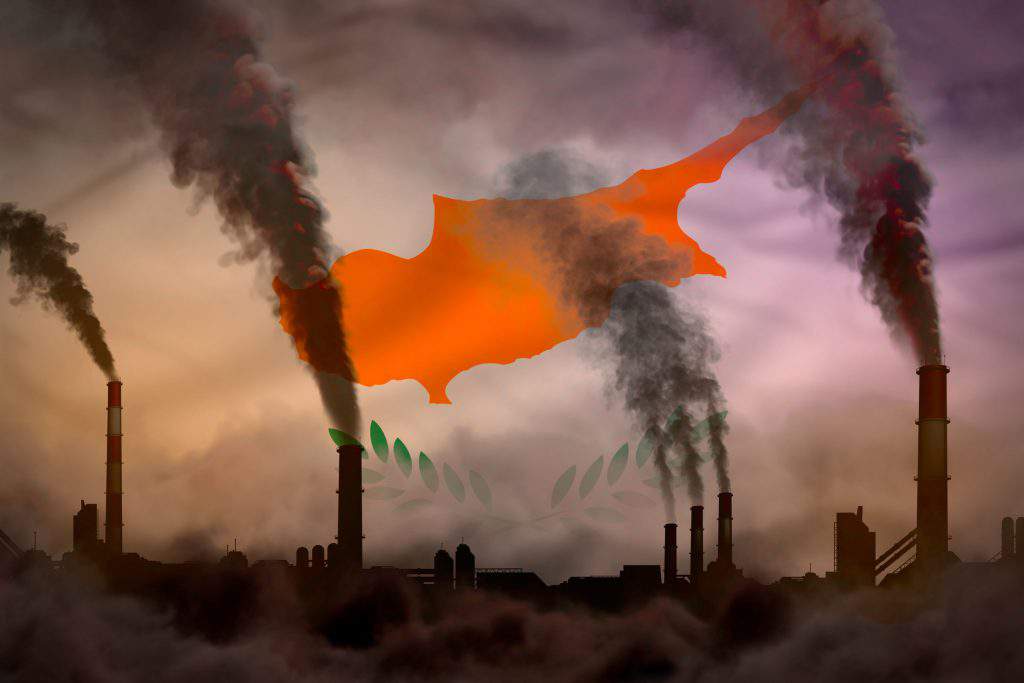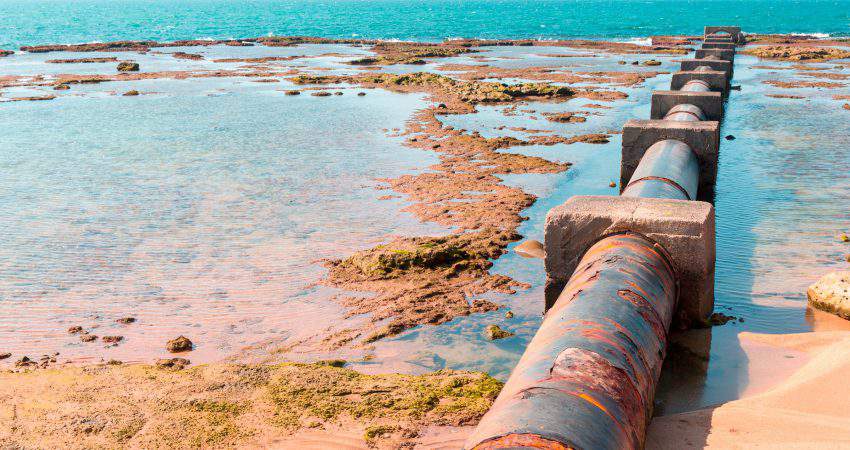Energy policy worldwide is built on a peculiar combination of political, economic and financial interests. This is particularly true in the eastern Mediterranean region, where the lucrative European energy market is undergoing a major transformation while the countries of the Middle East are constantly searching for favourable alliances. The planned EastMed pipeline is a vivid example of such a partnership arrangement.

On January 2, Greece, Cyprus and Israel signed a deal to build a new subsea pipeline to deliver natural gas to European markets. This happened only weeks after Turkey and Libya struck a deal on maritime boundaries in the Mediterranean, a move which Greece, Cyprus and Israel opposed.
Part of the 1,900-kilometre EastMed pipeline will cross the planned Turkey-Libya economic zone, established at the same time as the maritime deal. Ankara has been proceeding with geological exploration and military activities within the boundaries of Cyprus’s Exclusive Economic Zone.
Turkey currently claims that it is the most important and reliable energy supplier to south-eastern Europe. In a statement on the signing of the pipeline agreement Turkish Foreign Ministry spokesman Hami Aksoy said that Turkey provides the most economical and secure route for utilizing the natural resources of the eastern Mediterranean and delivering them to consumer markets in Europe, including Turkey itself.
Clearly, the decision to go on with the EastMed project is politically motivated, with the agreement being intended as a signal to Turkey.
If the political agenda of EastMed is clear, the economic objectives of the project are much murkier.
According to European analysts, the energy market in Europe is currently experiencing an oversupply of natural gas and this trend is likely to persist. Apart from some dozen European countries that carry out gas exploration (including the Netherlands, the UK, Romania and Germany), Europe obtains supplies from Norway, Russia, Algeria, Libya, Qatar, Nigeria and the US. This has led to predatory gas pricing in Europe and a consequent decrease in average price.
What increases the absurdity of the EastMed project even further is the move towards climate neutrality adopted by the European Union in 2018. According to the trillion-euro European Green Deal, the EU should achieve carbon neutrality by 2050. This goal will require a major transformation of the European energy sector. “Becoming climate neutral by mid-century won’t be achieved by simply setting new renewable and energy-efficiency targets. We will also be looking at infrastructure and other energy carriers,” said Florian Ermacora, an official from the European Commission’s Directorate-General for Energy.
On January 2, Greece, Cyprus and Israel signed a deal to build a new subsea pipeline to deliver natural gas to European markets. This happened only weeks after Turkey and Libya struck a deal on maritime boundaries in the Mediterranean, a move which Greece, Cyprus and Israel opposed.
Part of the 1,900-kilometre EastMed pipeline will cross the planned Turkey-Libya economic zone, established at the same time as the maritime deal. Ankara has been proceeding with geological exploration and military activities within the boundaries of Cyprus’s Exclusive Economic Zone.
Turkey currently claims that it is the most important and reliable energy supplier to south-eastern Europe. In a statement on the signing of the pipeline agreement Turkish Foreign Ministry spokesman Hami Aksoy said that Turkey provides the most economical and secure route for utilizing the natural resources of the eastern Mediterranean and delivering them to consumer markets in Europe, including Turkey itself.
Clearly, the decision to go on with the EastMed project is politically motivated, with the agreement being intended as a signal to Turkey.
If the political agenda of EastMed is clear, the economic objectives of the project are much murkier.
According to European analysts, the energy market in Europe is currently experiencing an oversupply of natural gas and this trend is likely to persist. Apart from some dozen European countries that carry out gas exploration (including the Netherlands, the UK, Romania and Germany), Europe obtains supplies from Norway, Russia, Algeria, Libya, Qatar, Nigeria and the US. This has led to predatory gas pricing in Europe and a consequent decrease in average price.
What increases the absurdity of the EastMed project even further is the move towards climate neutrality adopted by the European Union in 2018. According to the trillion-euro European Green Deal, the EU should achieve carbon neutrality by 2050. This goal will require a major transformation of the European energy sector. “Becoming climate neutral by mid-century won’t be achieved by simply setting new renewable and energy-efficiency targets. We will also be looking at infrastructure and other energy carriers,” said Florian Ermacora, an official from the European Commission’s Directorate-General for Energy.
On January 2, Greece, Cyprus and Israel signed a deal to build a new subsea pipeline to deliver natural gas to European markets. This happened only weeks after Turkey and Libya struck a deal on maritime boundaries in the Mediterranean, a move which Greece, Cyprus and Israel opposed.
Part of the 1,900-kilometre EastMed pipeline will cross the planned Turkey-Libya economic zone, established at the same time as the maritime deal. Ankara has been proceeding with geological exploration and military activities within the boundaries of Cyprus’s Exclusive Economic Zone.
Turkey currently claims that it is the most important and reliable energy supplier to south-eastern Europe. In a statement on the signing of the pipeline agreement Turkish Foreign Ministry spokesman Hami Aksoy said that Turkey provides the most economical and secure route for utilizing the natural resources of the eastern Mediterranean and delivering them to consumer markets in Europe, including Turkey itself.
Clearly, the decision to go on with the EastMed project is politically motivated, with the agreement being intended as a signal to Turkey.
If the political agenda of EastMed is clear, the economic objectives of the project are much murkier.
According to European analysts, the energy market in Europe is currently experiencing an oversupply of natural gas and this trend is likely to persist. Apart from some dozen European countries that carry out gas exploration (including the Netherlands, the UK, Romania and Germany), Europe obtains supplies from Norway, Russia, Algeria, Libya, Qatar, Nigeria and the US. This has led to predatory gas pricing in Europe and a consequent decrease in average price.
What increases the absurdity of the EastMed project even further is the move towards climate neutrality adopted by the European Union in 2018. According to the trillion-euro European Green Deal, the EU should achieve carbon neutrality by 2050. This goal will require a major transformation of the European energy sector. “Becoming climate neutral by mid-century won’t be achieved by simply setting new renewable and energy-efficiency targets. We will also be looking at infrastructure and other energy carriers,” said Florian Ermacora, an official from the European Commission’s Directorate-General for Energy.
According to European analysts, to achieve the targets set by the European Green Deal, EU member states will need to cut their gas consumption by 75%. This drastic decrease in demand will make supplies of the rather expensive eastern Mediterranean gas uneconomical and the EastMed project loss-making.

According to a schedule agreed on in January, Greece, Cyprus and Israel aim to reach a final investment decision by 2022 and have the pipeline completed by 2025. Even if all the preliminary stages are implemented on time, there will be only 25 years left for the pipeline to operate before the EU is due to achieve climate neutrality.
In order to make its way to European consumers, natural gas from the eastern Mediterranean needs not only to travel some 2000 kilometres, but also to overcome tough competition with other suppliers.
In purely economic terms, Russian gas beats that from the eastern Mediterranean. Currently, hydrocarbons from Russia form up to 35% of all the nonrenewable fuel imported by the EU. EastMed meanwhile is capable of supplying only 2-4% of the volumes needed. Moreover, the price of “politically acceptable” supplies is likely to be as much as 15% higher than the current prices proposed by Russia.
Unfortunately for the EastMed project, the issue of energy security is not as thorny as it was a while ago. Thanks to mediation by Brussels, the question of the transit of Russian Gas through Ukraine has been resolved for at least five years. “Now we have in place a political framework with key arrangements that are necessary to pave the way for a long-term gas transit contract between companies,” said European Commissioner for energy Maroš Šefčovič after the deal was signed on 20 December 2019. Therefore, the need to secure alternative routes is no longer of such great concern.
The United States, which is actively fighting for European energy markets, now finds itself in an uncertain situation. Although the pipeline itself is not advantageous to American energy strategy in Europe, Washington is supporting EastMed.
One of the reasons for this is the long-standing alignment between the US and Israel. But there is more to it than political considerations alone. It is clear that the eastern Mediterranean countries are now considering two possibilities – either to develop pipeline infrastructure and forge a connection to European consumers, or to prioritize LNG infrastructure. The latter option is less favourable to Washington, as LNG from a neighbouring region will certainly be more competitive in European markets than American LNG. The United States has exported record amounts of LNG to Europe every year since 2016, reaching an average of 142 million cubic metres per day in 2019, and additional competition on this front is undesirable for American exporters.
The construction of a pipeline, on the other hand, is likely to consume both time and financial resources. Therefore, the support that the US is showing towards the project is at the same time securing its place in the developing LNG market in Europe.

